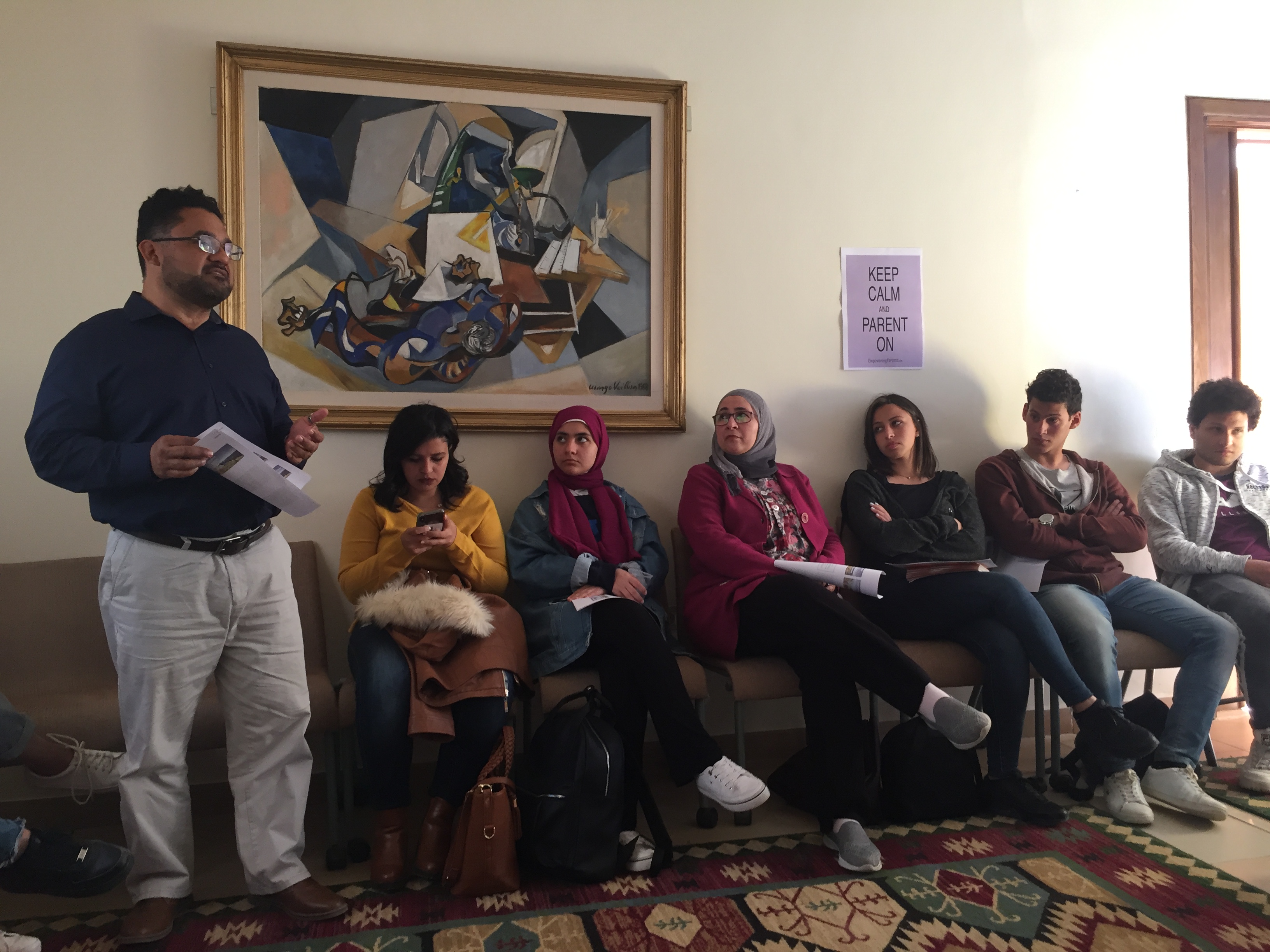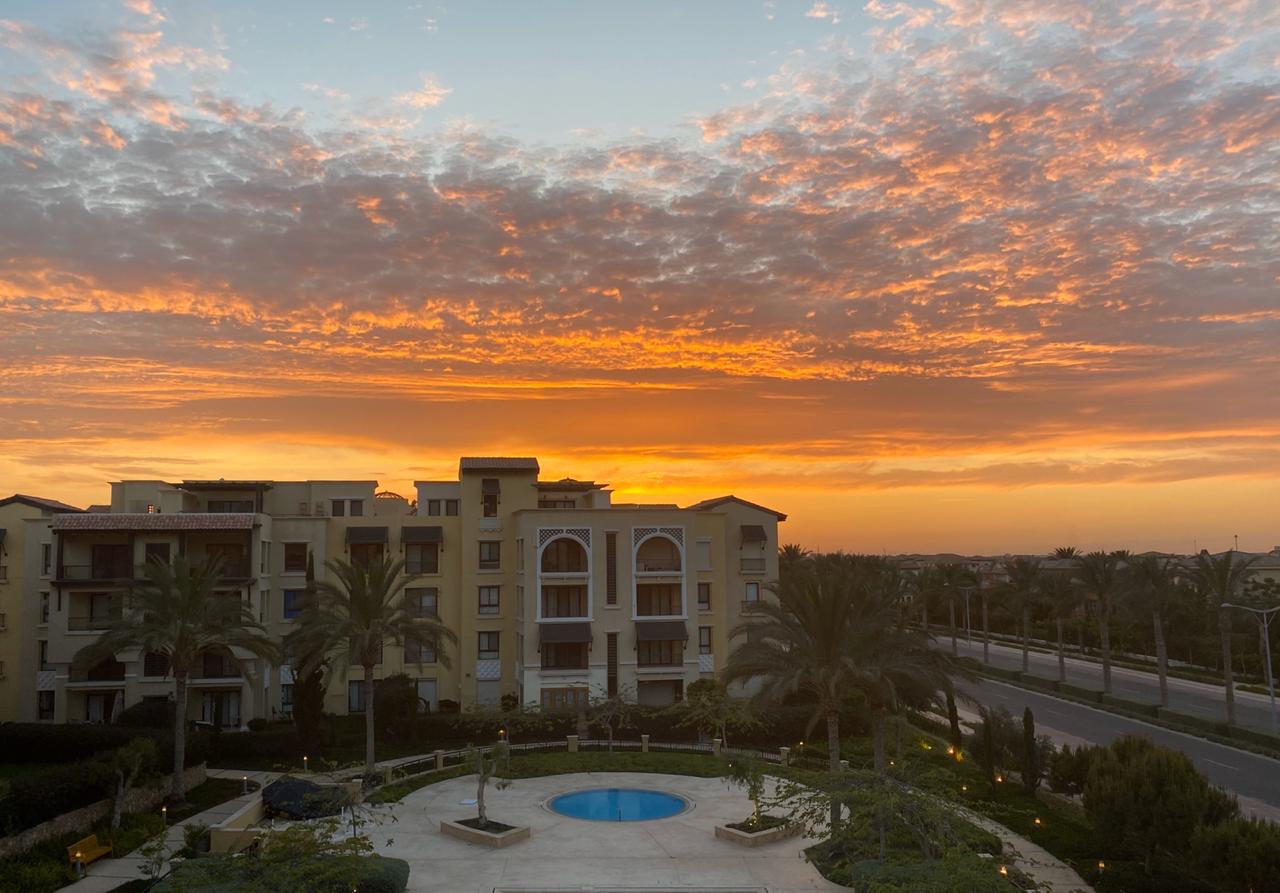Syrian Refugees Set Up Their Own School in Egypt
By: Mariam El Menofi
@MariamSherif15
![In the wake of the civil war, Syrian refugees set-up their own schools before they began attending Egyptian institutions as well [Shaher Rajoob]](http://www.auccaravan.com/wp-content/uploads/2016/12/unnamed-1-e1481107976751.jpg)
Syrian refugees in Egypt have established their own education centers in a bid to safeguard their culture and identity.
Officially, Syrians are not allowed to build their own schools in Egypt.
But they have found ways around this and are offering homegrown curricula as alternatives for schools back home.
Bassel Abdelmeguid, the founder of the Albanafseg Syrian Educational Center, rented a four-story villa in the Fifth Settlement District and turned it into a school for Syrian children as a temporary measure while they waited to return home.
The school accommodated Syrian students such as Bahaa Abd who found it difficult to learn in the Egyptian dialect of Arabic.
But four years later, with the war in Syria still raging, Abdelmeguid merged Albanafseg with an Egyptian institution – the Zoser Language School.
Now that it is associated with a recognized Egyptian scholastic institution, Albanafseg’s students can continue their education in parallel with the curriculum offered at Zoser.
“It’s harder for the older generations to follow up with a new language system so they had to transfer, but we can mange younger ones like primary level students,” said Abdelmeguid.
Students attending private Syrian educational centers, such as Albanafseg, are now also enrolled in Egyptian public or private schools.
“They have to attend at least two days from the Egyptian schools they are enrolled in for the sake of attendance,” Shaher Rajoob, Media representative from Bonat Alhadara Educational Center, told The Caravan.
This center was established in 2015 by Hossam in the 6th of October District, serving not only Syrian refugees but also Liberian, Iraqi and Yemeni students as well.
They study throughout the academic year at these centers but attend their final exams at the Egyptian schools where they are eligible of the General Education Certificate.
At the primary level, they are taught the Egyptian national curriculum exclusively by Syrian teachers.
Older students, however, are taught by a combination of both Syrian and Egyptian teachers.
This is because refugees at a young age are more vulnerable and can therefore find it difficult to accustom not only to the dialect, but also the foreign environment.
Those The Caravan spoke to revealed that they felt marginalized and alienated as a minority in Egypt.
To help mitigate these fears, these educational centers also provide the refugees with programs and activities that create a more familiar environment.
For example, they play the Syrian national anthem every morning. This is believed to assist in assimilating them into the Egyptian landscape.
These educational centers also face the additional trouble of having to provide for those who have missed several years of education because of the civil war and the transition period between migrating.
“It is hard from the sense that you’re trying to redevelop a kid who has been away from education for two years,” Abdelmeguid added.
In April 2016, the Egyptian Ministry of Education released a statement saying that a Syrian student is entitled to the same rights Egyptians are “in accordance with the law.”
As such, Syrians who graduate from Egyptian secondary schools are to be enrolled in universities in Egypt with the same conditions as Egyptians and not as foreigners.
This applies even if they have not been naturalized with the Egyptian identity.
In just few years, there are almost 25 Syrian educational centers all over Egypt, 15 of which in Cairo.


